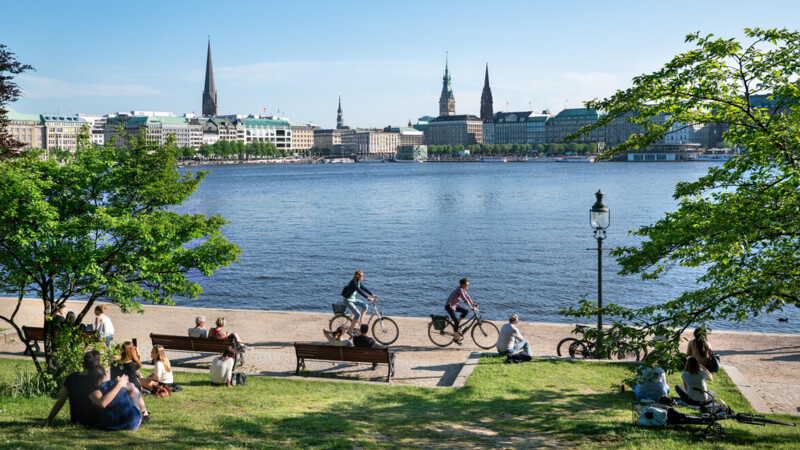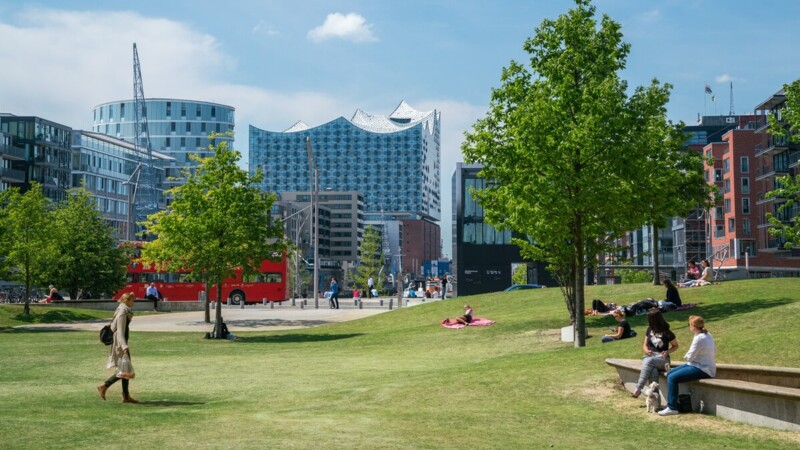"Investments are important now for strengthening the international competitiveness of companies and our location," said Norbert Aust, President of the Chamber of Commerce. "Hamburg's economy is well placed to seize these opportunities and market them internationally." The Port of Hamburg is an energy hub, the largest contiguous industrial area and guarantor of sustainable supply making it a key local platform. Another effective lever is the electrification of freight transport by road. "All sectors in Hamburg can benefit from this and make the place a pioneer of climate-neutrality in Germany, Europe and the world," he pointed out.
A study entitled "Climate Neutrality of the Hamburg Economy by 2040", which was commissioned by the Chamber of Commerce, shows how this goal can be achieved. The study, which was produced in collaboration with the Organisation for Economic Co-operation and Development (OECD), identifies options for action in various economic sectors. The goal of climate neutrality by 2040 is ambitious, but achievable, it found.
Making Hamburg a pioneer of climate-neutrality
Climate neutrality and international competitiveness mutually dependent
Climate neutrality and international competitiveness are mutually dependent, but require swift, decisive action. The OECD has recommended climate neutral measures in transport, the circular economy and hydrogen. "Hamburg will be one of the first ports in the world to import hydrogen on a large scale," said Ursula von der Leyen, President of the EU Commission. The study also highlights the role of business networks and existing opportunities for a more efficient, non-fossil energy supply. So what can entrepreneurs do to achieve net-zero greenhouse gas emissions by 2040?
OECD recommendations for net zero emissions
To achieve climate neutrality, emissions should be reduced in three scopes (Scope 1, 2 and 3). Interim targets for reducing emissions as well as action plans and regular progress reports should be drawn up and published. Companies should also cut their own emissions and limit the use of carbon capture and storage (CCS) for industrial processes instead of relying on international compensation. Backed by the Chamber of Commerce, SMEs could create networks on strategic topics, e.g., the coordinated decarbonisation of entire value chains, cost savings through better use of renewable energies and infrastructure requirements through the electrification of road freight transport and the circular economy.
mm/pb
More
Similar articles

Companies in Hamburg seek funding for climate efforts - apply now

Senate approves draft of new climate protection law

